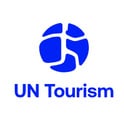Mallorca Joins UNWTO’s Network Of Sustainable Tourism Observatories
The World Tourism Organization (UNWTO) has welcomed Mallorca’s Sustainable Tourism Observatory into its International Network of Sustainable Tourism Observatories (INSTO).
Mallorca, one of Europe’s top destinations for more than 70 years, welcoming millions of visitors every year, becomes the latest member of UNWTO’s global INSTO network. The Mallorca Sustainable Tourism Observatory (STO) is a key new element of the island’s strategy to preserve the destination and assess how the sector affects the natural environment, economy, and residents.
The Observatory will systematically monitor the environmental, social and economic impact of tourism and so facilitate evidence-based decision making. Key objectives for the island’s tourism sector include promoting a circular economy within hospitality, reducing the overall carbon footprint, and promoting local gastronomy to enhance Mallorca’s reputation and increases its appeal.
Commenting, UNWTO Secretary-General Zurab Pololikashvili said: “We warmly welcome the Mallorca Sustainable Tourism Observatory into our global network of observatories. As a mature destination, the Observatory’s work will generate more and better evidence of the economic, environmental and social impacts that tourism has on the destination. This will further facilitate the decision-making process and ensure that tourism can continue to be a tool for sustainable development.”
Catalina Cladera Crespí, President of the Consell de Mallorca said “The Mallorca Sustainable Tourism Observatory will play a fundamental role in monitoring and dealing with issues like job creation and sustainable production and consumption, public health and safety and security, human rights, quality education and inequalities. Being part of UNWTO’s global network of observatories will help Mallorca become a more dynamic, attractive and sustainable destination.”
The Mallorca Sustainable Tourism Observatory is managed by the Fundación Mallorca Turismo, part of Mallorca´s Island Council and is supported by the local and national Spanish public and private sector. This is the third Observatory in Spain, following on from the inclusion of the Navarre and Canary Islands Tourism Observatory into INSTO, and brings the worldwide total to 31.
About INSTO
The UNWTO International Network of Sustainable Tourism Observatories (INSTO) was created in 2004 with the main objectives of supporting the continuous improvement of sustainability and resilience in the tourism sector through systematic, timely and regular monitoring of tourism performance and to connect dedicated destinations, helping them to exchange and improve knowledge and understanding about destination-wide resource use and the responsible management of tourism.
About UN Tourism
The World Tourism Organization (UN Tourism) is the United Nations agency responsible for the promotion of responsible, sustainable and universally accessible tourism.
As the leading international organization in the field of tourism, UN Tourism promotes tourism as a driver of economic growth, inclusive development and environmental sustainability and offers leadership and support to the sector in advancing knowledge and tourism policies worldwide.
Our Priorities
Mainstreaming tourism in the global agenda: Advocating the value of tourism as a driver of socio-economic growth and development, its inclusion as a priority in national and international policies and the need to create a level playing field for the sector to develop and prosper.
Promoting sustainable tourism development: Supporting sustainable tourism policies and practices: policies which make optimal use of environmental resources, respect the socio-cultural authenticity of host communities and provide socio-economic benefits for all.
Fostering knowledge, education and capacity building: Supporting countries to assess and address their needs in education and training, as well as providing networks for knowledge creation and exchange.
Improving tourism competitiveness: Improving UN Tourism Members' competitiveness through knowledge creation and exchange, human resources development and the promotion of excellence in areas such as policy planning, statistics and market trends, sustainable tourism development, marketing and promotion, product development and risk and crisis management.
Advancing tourism's contribution to poverty reduction and development: Maximizing the contribution of tourism to poverty reduction and achieving the SDGs by making tourism work as a tool for development and promoting the inclusion of tourism in the development agenda.
Building partnerships: Engaging with the private sector, regional and local tourism organizations, academia and research institutions, civil society and the UN system to build a more sustainable, responsible and competitive tourism sector.
Our Structure
Members: An intergovernmental organization, UN Tourism has 160 Member States, 6 Associate Members, 2 Observers and over 500 Affiliate Members.
Organs: The General Assembly is the supreme organ of the Organization. The Executive Council take all measures, in consultation with the Secretary-General, for the implementation of the decisions and recommendations of the General Assembly and reports to the Assembly.
Secretariat: UN Tourism headquarters are based in Madrid, Spain. The Secretariat is led by the Secretary-General and organized into departments covering issues such as sustainability, education, tourism trends and marketing, sustainable development, statistics and the Tourism Satellite Account (TSA), destination management, ethics and risk and crisis management. The Technical Cooperation and Silk Road Department carries out development projects in over 100 countries worldwide, while the Regional Departments for Africa, the Americas, Asia and the Pacific, Europe and the Middle East serve as the link between UN Tourism and its 160 Member States. The Affiliate Members Department represents UN Tourism's 500 plus Affiliate members.
UN Tourism Communications Department
+34 91 567 8100
UN Tourism
